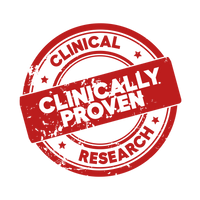The name of the game is speed. These days, we’re all on a mission to do things faster and more efficiently. While there is value in the saying, “slow and steady wins the race,” the fact of the matter is that our world values expediency. Everywhere you look and everywhere you go, people are looking for ways to get things done more quickly. The caveat is that we don’t want to sacrifice quality. How can you do it all and do it all well? The answer: improved reaction time.
Understanding Reaction Time
How quickly and accurately you respond to stimuli is your reaction time. Think about your reflexes. If someone were to unexpectedly throw you a ball, the speed at which you could register its incoming and react to it (catch it or dodge it) would indicate the quality of your reaction time. Still, that’s not the only way to gauge your alertness. Your ability to recall words, think on your feet, solve problems, and generally understand, process, and respond to information are what it’s all about.
Reaction time (RT) is one of the many markers of brain health. If you’re looking to become sharper and fine tune your cat-like reflexes, natural supplements for brain function may be something to look into. That’s where Tinc enters the equation.
Reaction Time in Real Time
Response time may be best explained by the following scenarios:
- You’re driving a car and you come to a crosswalk. How quickly you break and stop the car is your reaction time. This could prevent a dangerous car accident.
- Two people are in a boxing match. How fast they avoid strikes coming from their opponents is their reaction time.
- You’re in a burning building and you smell smoke. Your RT is how fast you run out of the building once you detect danger.
- A lawyer is in court for a case. How quickly they can shout “Objection!” to strike something from the record if it is not supposed to be discussed is an example of reaction time.
- Your ability to catch your phone before it drops to the ground and shatters into a million pieces is yet another example of reaction time.
Factors That Influence Reaction Time
Before we discuss how to improve your reaction time, it’s important to understand the factors that can affect it. Why are some people able to jump into action at the first sign of distress while others take several minutes to register that something is amiss? There are several major factors that determine how quickly you are to detect, process, and respond to a stimulus. These include:
Age. Reaction time tends to deteriorate with age because cognition tends to decline. RT is directly correlated to cognition and overall brain function. Typically, the older people are, the less likely they are to have the same level of agility they did in their youth.
Health. The quality of your health can directly impact how fast you respond to stimuli. Included in your health status is:
- Sleep. How much sleep did you get? Too little sleep can inhibit your ability to snap into action. Too much sleep can also be a problem, as it could make you groggy and slow to act.
- Substances. Being under the influence of substances like drugs and/or alcohol could impede reaction time. Alcohol in particular is a depressant, which means it slows down your ability to complete simple tasks. Ever find yourself slurring your words after one too many drinks? That’s because even your ability to coherently form words and sentences can be impacted by a little too much alcohol.
- Food & Nutrition. The amount of food you eat and the quality of the food you eat can also influence reaction time. Eating too little could be as problematic as eating too much. Too little food could result in not having enough energy to react quickly but too much food or too much of the wrong food could also be an issue. Foods that are high in sugar and processed carbohydrates may give you a boost of energy initially but they often come with a crash later on. The importance of eating a balanced diet cannot be overstated when it comes to response time.
- Neurological Conditions. Degenerative diseases like Alzheimer’s and Parkinsons are known to negatively impact reaction time, as they have a direct connection to cognitive function.
- Mental Health Conditions. Certain mental health conditions like ADHD and clinical depression interfere with the ability to concentrate. This could result in a more scattered or disinterested mindset, which often leads to problems with cognition and processing information.
Genetics. Some people are simply genetically predisposed to have slower reaction times.
Environment. Your environment may also play a role in your reaction time. Overexposure to certain stimuli could desensitize you to it, which could make you less likely to act in the fact of an event. For example, people who live in noisy, urban areas may not flinch when they hear a siren from an ambulance. Someone who lives in a quiet, rural area, on the other hand, would likely get startled by the same noise.
The Importance of Having Good Reaction Time
Reacting quickly to the stimuli that pop up in our daily lives is integral for two major reasons. First, it keeps us safe. How fast we process information could be lifesaving in some situations.
Another consideration for reaction time is how it influences productivity. Forming coherent responses to unexpected questions, providing quick and logical answers, and recalling words and other information are all examples of enhanced productivity, which are useful in both work and personal life.
How to Improve Reaction Time
Now the question remains: how do you improve reaction time? It comes down to neuroplasticity, which is “the ability of the nervous system to change its structure and function over a lifetime in reaction to environmental diversity.” In layman's terms, neural plasticity is how easily the brain can recover and restructure when exposed to impactful stimuli.
So how do we do that? One way is to practice cognitive exercises that strengthen synaptic connections. Brain games that target your reflexes could be beneficial. There are many online resources for these types of games and exercises, as well as tons of apps that gamify this type of training.
Another route is to explore natural supplements for reaction time. Made with natural ingredients that already occur in many of the foods we already eat, natural supplements increase the supply of beneficial nutrients you may need for better reflexes.
Natural Supplements for Reaction Time: The Key Ingredients
Key Ingredients to Enhance Reaction Time
There are several ingredients that have been scientifically shown to help improve reaction time. These include:
Caffeine
This natural stimulant is one of the most widely used for reaction time, and for good reason! Many people get their daily dose of caffeine from a cup of coffee, but there are other ways to take it a step further. That doesn’t necessarily mean more caffeine; rather, it means caffeine and coffee fruit extracts from the right sources, like Tinc. Combining your supplements in this manner could be the formula for improved alertness, energy, reaction time, and overall brain function.
L-Theanine
There is an extensive amount of evidence to support the connection between L-theanine supplementation and reaction time in healthy individuals. Studies have even been conducted to evaluate L-theanine’s efficacy on individuals with high anxiety and effects were impressive.
DHA (Omega-3 Fatty Acids)
Many tout DHA supplements for their connection to improved thinking, memory, and reaction time. This is in comparison to people who have low levels of DHA. A randomized control trial analyzing reaction time in healthy young adults found benefits from supplementing with DHA, which is promising for the future of preventative measures.
Resveratrol
This antioxidant naturally occurs in the skin of purple and red fruits like blueberries and grapes. Some suggest that taking resveratrol supplements could help maintain the hippocampus and slow brain function decline.
Rhodiola Rosea
This natural supplement has long been used in ancient Chinese medicine to promote healthy brain function by reducing stress-induced fatigue.
Choosing the Right Natural Supplement
If you’re ready to take the next step in your natural supplement journey, it’s time to find the right one. Factors to consider when searching for the right supplement for focus, reaction time, and attention span include:
- The research. Has enough research been done on your chosen supplement to make taking it worth your while?
- Recommended dosage. How much of the supplement do you need to take for it to work?
- Reviews. Customer testimonials and reviews may offer insight into how well the supplement you’re considering works.
- Your lifestyle. Is this going to interfere with your daily life? Natural supplements for brain health should add to your life, not take away from it. Look for a supplement that is easy to incorporate into your lifestyle. You’re much more likely to take something that can be added into your cup of coffee, for example, than you are to start a whole 10-step routine.
- Your goals. Getting specific with what you want to get out of taking this supplement will help you determine if it’s actually doing its job.
Incorporating Natural Supplements into Your Routine
Here are some final tips for incorporating natural supplements into your routine.
- Make it work for you. Remember, whatever supplement you take should benefit you and be an asset to your life rather than a detriment
- Add it into an already healthy lifestyle. It’s important to maintain a healthy lifestyle alongside a natural supplement regimen. Just adding in this single ingredient may not fix all the bad habits you’ve accumulated over the years. It’s important to get your health in order so you have the best chance at feeling better.
- Set up reminders. If possible, start a monthly subscription for your supplement so you don’t run out. If that’s not an option, set a reminder to reorder before your supply gets low.
Frequently Asked Questions
Yes, supplements for reaction time are considered safe if they are taken under the guidance of a healthcare professional and as per the instructions provided by the manufacturer.
There may be certain age restrictions and health restrictions for taking natural supplements. It is always best to refer to the manufacturer’s guidelines and to speak with a healthcare professional prior to starting any supplement regimen.
That depends on the supplement you take, your body composition, other supplements you may be taking, medications you may be taking, and a variety of other factors. Some people may start to see results immediately. For others, it may take up to a month.
All natural supplements have recommended dosages based on expert advice. The recommended serving of Tinc Brain Boost is one single ¼ teaspoon serving at a time. This has been shown to be safe and bioavailable as per human, peer reviewed clinical trials.
Your path to better reflexes, faster responses, and expedited reaction time could be an easy one. Improve alertness and stay at the top of your game when you explore natural supplements for reaction time with Tinc.





